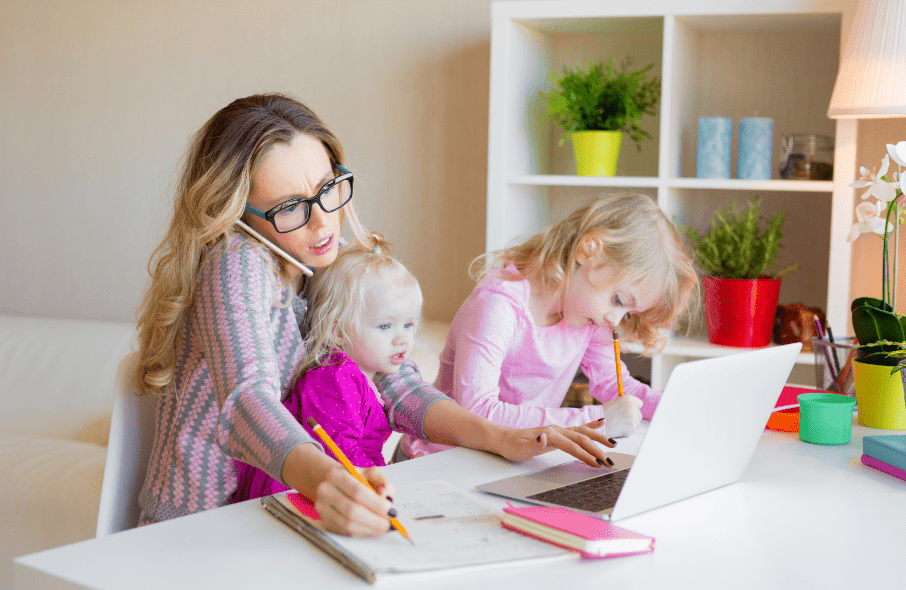Top tips on how to cope at home with kids, during the #Covid_19 lockdown

@KiddiesKingdom share some tips and #MondayMotivation on how to cope with kids potentially long term at home through #Coronavirus for the #StayatHomeChallenge and #CoronavirusLockdown
As a result of the Coronavirus outbreak, many families will find themselves facing hours, days and potentially weeks at home with their loved ones. With school closures in place for the foreseeable future, all except for keyworkers, many parents that are working from home will find the idea of managing a heavy workload with kids, extremely challenging.
Leading baby retailer, Kiddies Kingdom, has put together some tips that will make the coming period spent indoors with your children a little bit easier.
Take some time to make a plan
This major shift in routine will have come as a big shock to most parents, so it’s important to take some time to come to terms with the situation and make a plan of action. The idea of spending all day at home with the kids can seem overwhelming and stressful, so establishing roles and responsibilities is key. If both you and your partner are working at home, take shifts to lighten the load and make it clear to children that this is non-negotiable. Establish what your coping strategies will be to prevent tensions down the line, whether it’s exercise, mindfulness or getting some vitamin-D, this will help the whole family stay calm and focussed, so should not be neglected.
Maintain structure
As tempting as it is to treat the family to a lie in and enjoy a leisurely breakfast, it’s important to try to maintain a ‘normal’ routine. Children will need formality and structure during this unusual time, and they’ll be looking to parents to provide that. Outline set times for learning and play throughout the day, whilst also being realistic with what can be achieved. This will help children realise this is not a holiday and demonstrate to them that you are replacing the role of teacher for the time being.
Be honest and transparent
During this period, children will struggle to grasp what is going on, so it’s more important than ever to communicate as a family. Keep it simple for younger children and remain positive as they may pick up if you’re overly anxious.
Use simple terms that are less alarming, such as ‘bug’ as opposed to ‘virus’ and avoid having the news on 24/7 as, if this is not your normal routine, it could spark fear. Online tools like YouTube and BBC Bitesize can be used to communicate what’s happening in your household whilst also educating younger children on the wider picture. Set some time side aside every day to focus on the positives and relay this to your children. Not only will this lift spirits, it will be beneficial for your own mental wellbeing.
Make it fun
There are lots of ways to make learning fun whilst staying at home, outside of the typical English and maths lessons. Do some research around how much time your child should be learning per day, dependent on their age, and fill the rest of the day with interactive play such as; baking, painting and getting in the garden, to ensure each day is varied. Encourage a healthy use of technology by restricting screen time, but also incorporate devices into learning, as there’s ample apps and online learning sessions that are both fun and educational for all the family. This period will also give you some down time to work from home or to simply put your feet up.
Endorse movement
As everyone is inevitably spending more time sat stationary, it’s more important than ever to keep children moving. To kick start the day, organise a family exercise or yoga session as this will make sure everyone is stretched and feeling motivated. These home workouts don’t have to involve purchasing expensive equipment, many celebrity coaches are running online exercise workouts for both adults and children and if you’re able to do these live, it can be a great way for kids to interact with their friends and classmates.
Whilst you’re restricted to being at home during this period, you can sit outside with family members if following government guidelines, so those with a garden or outside space will have the benefit of getting more fresh air than normal. When the weather is nice, why not set up a circuit in the garden using obstacles or exercise equipment for little ones to play on throughout the day? This will not only improve their cognitive function, but with it their mental health!











Responses